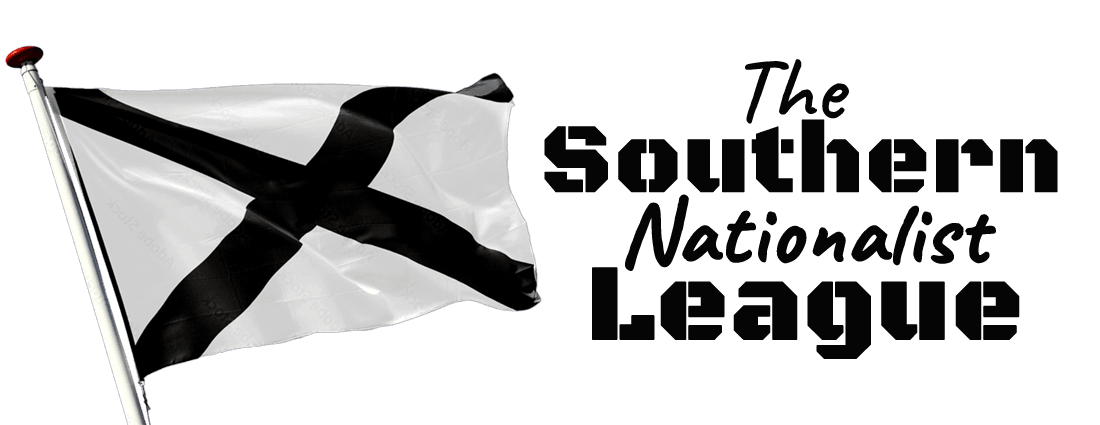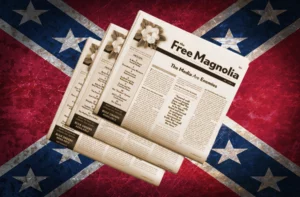A LESSON FOR THE SOUTH: AN INTRODUCTION TO SINN FEIN AND THE DAIL EIREANN
(Author’s Note: While the Southern movement is interested in the Irish nationalist movement from an organizational and tactical point of view, we reject the leftist politics of these groups.)
In 1902, Arthur Griffith, editor of the United Irishman, introduced to his Irish compatriots the most revolutionary political idea since the days of Charles Stewart Parnell a generation earlier. Griffith advocated that Irishmen elected to Parliament refuse to sit in the assembly at Westminster, demand the restoration of the Irish Parliament of 1782, and pledge loyalty to Ireland rather than to the King of England. Griffith set forth a strategy of passive resistance that, if implemented, would turn an assembly of Irish Members of Parliament (MPs) into a de facto Irish national legislative body.
Within three years of Griffith introducing his idea, an organization known as Sinn Fein (“Ourselves Alone”) was born on 28 November 1905. Sinn Fein was an abstentionist political organization determined to reject the English overlordship of Ireland. Along with Griffith, the other founders of Sinn Fein were Sean T. O’Kelly, Bulmer Hobson, Countess Constance Markiewicz, and Sean MacDiarmada.
During its first decade of existence, Sinn Fein ran candidates mainly for county councils and other local offices. It also advocated that Ireland have its own monarch in place of the King of England. During this decade, the organization came under growing influence of the Irish Republican Brotherhood (IRB), led by a rising young Irish nationalist, Michael Collins. Collins and the IRB caused Sinn Fein to change its support from a monarchy to an Irish republic. After the unsuccessful Easter Rising in 1916, Sinn Fein became the principle political support for the idea of an independent Irish Republic as outlined in the Proclamation of 1916, the document issued to support the Easter Rising and the subsequent establishment of a free Irish republic.
Sinn Fein’s first major leadership change came in the wake of the trial and execution of the leaders of the Easter Rising. In June 1917, Eamonn de Valera, the highest ranking surviving leader of the Rising, was elected President to lead the organization. He replaced Griffith in October and began outlining an election strategy for the 1918 elections.
In the 1918 elections, Sinn Fein promised the Irish people that if their candidates were elected as MPs, they would not represent their constituents in Westminster. Rather, they would establish, without outside permission or hindrance, a republican assembly that would be a government for Ireland. Sinn Fein spectacularly won 79% of the popular vote and 73 of 105 contested seats. In fact, the election served as a plebiscite for Irish independence. The 73 victorious Sinn Fein candidates assemble in the Mansion House in Dublin to form a new body—the Dail Eireann, which issued an Irish Declaration of Independence on 21 January 1919. Very much like the actions of the American Second Continental Congress of 1774, the Dail’s efforts produced a document legally equivalent to the American Declaration of Independence of July 1776.
The Irish people had clearly spoken during the 1918 elections. Pointing to American President Woodrow Wilson’s idea of national self-determination, contained in his Fourteen Points (which served as a basis for ending World War One), the Dail Erieann sought recognition of an independent Ireland and a seat at the Versailles Peace Conference. Both were denied them. Moreover, the British Imperial government in London not only refused to recognize the Dail and Irish independence, but it began an aggressive campaign to undermine and destroy the Irish independence movement. The result was the Black & Tan War (1919-1921).
How does this example from Irish history relate to the current Southern nationalist movement? More specifically, how does it relate to The League of the South and the more recently-established Southern National Congress? First, the Southern movement understands that Southerners, like the Irish of a century ago, are a captive people held in an empire created and maintained without their consent. The South has been a colony since its defeat on the battlefield in 1865. Once the richest section of these united States, it now is the poorest. The exploitation suffered by the South is much akin to that suffered by Ireland at the hands of its conquerors for some 800 years. In short, both Irishmen and Southerners have legitimate grievances.
Second, Ireland, like the South, was in a position of seeming weakness when compared to the forces (military, economic, and political) arrayed against it. However, the Irish countered by simply withdrawing their consent to and recognition of the Imperial government in London. This was their greatest weapon against English oppression. That is what both the League and the Southern National Congress are determined to see happen in the South. Like Sinn Fein and the Dail Erieann, we must convince our fellow countrymen to withdraw their consent to and support of the American Empire.
The Irish nationalist movement in the late nineteenth and early twentieth century developed and nurtured its own parallel institutions to which Irishmen could attach their loyalties. We in the Southern Nationalist movement must do the same. Indeed, we have made a good deal of progress in that direction by the establishment of various State Southern Party organizations, Hedge Schools (taken directly from the Irish experience), our own publications, internet radio station, support for local freeholders, and, now, the Southern National Congress.
We envision the League playing a role similar to Ireland’s Sinn Fein, while the Southern National Congress acts as the foundation for our own version of the Dail Eireann. Though not now an elected body, the Congress presently will allow Southern Nationalists an opportunity to issue position statements on issues of concern to the South and to get valuable experience in the art of statesmanship. Moreover, it will familiarize Southerners with a body that one day, God willing, will give voice to the political aspirations of the South.
We Southern Nationalists do not expect Washington, DC, to act any differently toward us than the British Imperial government in London did toward our counterparts in Ireland. In other words, we expect them to ignore, ridicule, and then aggressively oppose our efforts. But, like the Irish, we will not be denied our God-given rights to govern ourselves according to our own standards and in our own best interests. If it is but ourselves alone, by the grace of God we will persevere.
Michael Hill
Killen, Alabama


